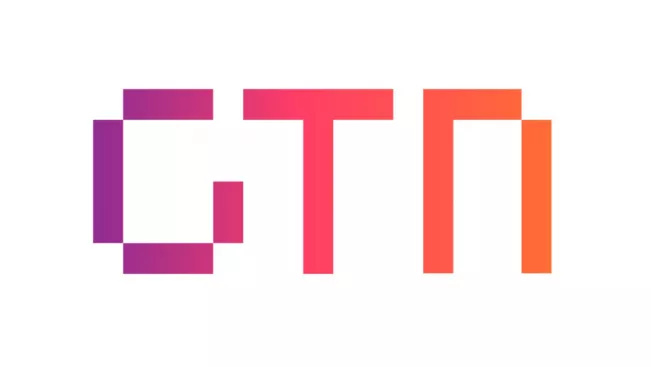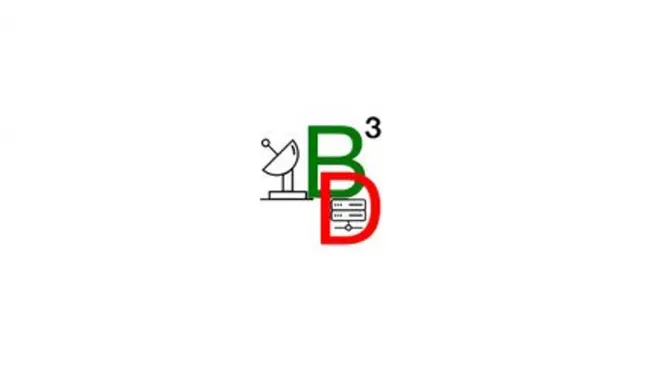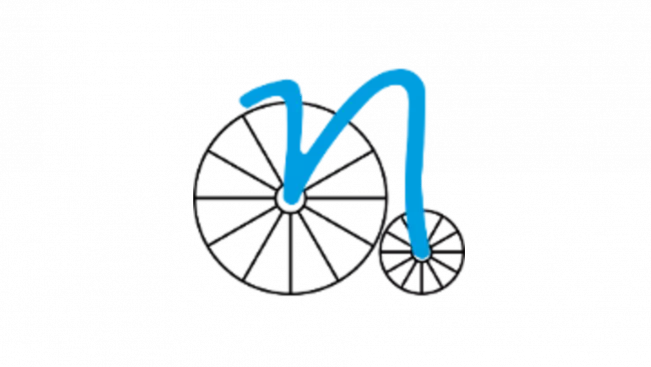Department of Computer Science

Prof. Dr Ernst Kruijff
Professor for Human Computer Interaction/Co-Director Institute of Visual Computing (IVC)
Unit
Department of Computer Science, Institute of Visual Computing (IVC)
Location
Sankt Augustin
Room
C 273
Address
Grantham-Allee 20
53757, Sankt Augustin
Telephone
+49 2241 865 9616Research Projects
In the Sensorium+ project, the Institute of Visual Computing (IVC) at Bonn-Rhein-Sieg University of Applied Sciences, in collaboration with VAGOSolutions, is developing an innovative augmented reality platform that utilizes artificial intelligence to enable accessible and multisensory experiences in museums. The aim is to make cultural education accessible and engaging for as many people as possible, with a particular focus on individuals with sensory, motor, or cognitive impairments.
The "Digital Twin-4-Multiphysics Lab" (DT4MP) focuses on urban digital twins (UDTs) and multiphysics twins for industry, treating both areas equally and synergistically. By integrating real-time data and advanced simulations, DT4MP enhances urban processes, infrastructures, and industrial production efficiency. Combining AI and machine learning, the lab provides services like data analysis and virtual testing for SMEs and larger companies. Founded by leading institutes, DT4MP drives digitalization research in urban and industrial contexts.
Project management at the H-BRS
Prof. Dr Sebastian Houben Prof. Dr Dirk Reith Dr Alexander HaggModern sensor technology and mobile measuring systems enable close monitoring of environmental data and pollution. Examples are climate data and trends, pollution and emissions, or changes in the microclimate due to large-scale construction measures. Through municipalities ("Smart Cities"), but also in citizen science ("Citizen Science" and "Citizen Sensors") projects, a wide variety of sensor systems are used, which can also provide important information in the event of disasters and major damage.
Project management at the H-BRS
Prof. Dr André Hinkenjann Prof. Dr Ernst Kruijff Prof. Dr Peter-Michael Kaul Prof. Dr Robert LangeFour universities in North Rhine-Westphalia have joined forces to establish the "Games Technology Network" (GTN). The Bonn-Rhein-Sieg University of Applied Sciences (H-BRS) has taken on the coordination. Its partners are RWTH Aachen University, Düsseldorf University of Applied Sciences and Cologne University of Technology. The project is initially scheduled to run for two years and is supported by the NRW Future Fund. The declared aim of the new alliance is to build up a network of research institutions and industrial companies that will promote gaming technology and thus benefit NRW as a business location.
Project management at the H-BRS
Prof. Dr André HinkenjannBig Bang to Big Data (B3D) is an interdisciplinary research, technology, and education alliance for data-intensive radio astronomy. The "cluster" links the scientific potentials of radio astronomy and data science. Funded under the Profiling 2020 funding program, the cluster aims to pool distributed expertise and resources and establish the data science expertise that radio astronomy research still lacks.
Project management at the H-BRS
Prof. Dr André Hinkenjann Prof. Dr Ernst KruijffAR/VR.nrw aims to integrate the key technologies augmented and virtual reality more strongly into teaching and research at universities and to improve collaboration in this area. Software is being developed for this purpose. In addition, exemplary learning scenarios will be developed and services for universities will be established to support teachers in the use and development of their own AR/VR teaching and learning content.
"Witality - Wine in Virtual Reality" represents a joint project of science and practice. The institutions involved in the project, Geisenheim University of Applied Sciences, Institute for Oenology (HGU), Bonn-Rhein Sieg University of Applied Sciences, Institute for Visual Computing (H-BRS), Pieroth Wein AG (PR) and DLG TestService GmbH (DLG), enable a close exchange between science and practice on the use of virtual reality (VR) for the sensory analysis of wine.
Project management at the H-BRS
Prof. Dr André Hinkenjann Prof. Dr Ernst KruijffThe development of sustainable electromobility is one of the social challenges our time, which is considered in the research project eTa. The energy efficiency of vehicles is addressed in aerodynamic projects and optimized operating strategies. In particular, non-classic vehicle concepts are in focus. Alternative mobility concepts based on non-fossil fuels need new supply structures. The optimized expansion of the loading infrastructure is therefore another issue. But even the best mobility concept is useless if it is not accepted by society and implemented by politics and business. Therefore, acceptance questions are a central element of eTa, which will be further developed. The following areas are addressed primarily by the need to reduce energy consumption: Efficiency of the vehicles Alternative mobility concepts Efficiency of mobility concepts Technical acceptance In particular, these are questions which arise only from the combined consideration of these subject areas and are usually not fully answered in classical manner. Examples of this are optimization of hybrid controls for muscle-electric hybrid light vehicles and study of the aerodynamics of ultralight vehicles where results of the classic wind tunnel tests often do not correspond to the results of the practice. Other topics that we are dealing with are predictive operational strategies for electric combustion hybrid vehicles and loss optimization, optimization of multi-stage placement of charging stations, acceptance of alternative mobility concepts.
Project management at the H-BRS
Prof. Dr Alexander AsterothAugmented reality (AR) is a field of research that has seen a steep incline in attention over the last years. Recently, it has been driven by simple cell phone applications as well as the appearance of low-cost head-worn display devices such as Google Glass, and will likely see further uptake through Microsoft Hololens. Nonetheless, the field of research itself has steadily been growing for well over a decade, driven primarily by research systems, but also by increasing industry interest. The basic premise of AR is the overlay of digital imagery over real-world footage. However, how we present information in an effective way, reflecting the potential and limitations of the human perceptual system, is still an open issue. To improve the usability and performance of AR systems and applications, perceptual issues must be approached systematically: there is a need to understand the mechanisms behind these problems, to derive requirements and subsequently find solutions to mitigate effects. To focus our scope, in the proposed work we will predominantly look into advancing view management techniques, while mainly dealing with labels as main information visualization technique. Labels are the predominant mode of information communication in most AR applications and highly intertwined with view management. Labels generally hold text, numerical data or small graphical representations in a flag-like form that point towards the real-world object it refers to. The management thereof can be very challenging: for example, it may be required to order a larger number of labels that likely cause clutter and occlusion, which results in difficulties processing the provided information. Hence, without adequate view management techniques we will not be able to design effective interfaces especially when complexity rises. This is especially true once a narrow field-of-view (FOV) head-worn display device is used. These display devices are increasingly popular as high quality and affordable commercial versions become available and a higher uptake is expected. Yet, adequate view management methods specifically designed for narrow FOV are not available. Aims and Objectives In the project, we will advance the state of the art in the following areas: Create a benchmark system that supports the research effort – it is specifically intended to create a platform for performing validations und comparative conditions, both within the frame of the research program as well as by other researchers. Create a better understanding of perceptual and interrelated cognitive issues arising when using narrow FOV AR displays for exploring increasingly complex information, and comparing these findings to medium and wide FOV displays. Develop innovative view management techniques specifically tuned towards narrow FOV displays, hereby encompassing both (a) improvements to visual management of information represented through labels as well as (b) exploring the potential and developing view management methods based on auditory and tactile cues. Create guidelines to guide the design of novel interfaces.
Project management at the H-BRS
Prof. Dr Ernst Kruijff



